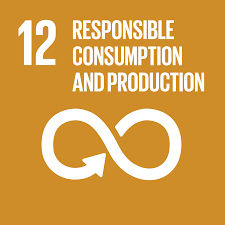It is core to the mission of Scilutions to provide products that meet sustainability goals of our customers. Here are a few ways that we can help.
Zero Waste Manufacturing
At Scilutions, we utilize State of the Art injection molding technology that eliminates waste in the process.
Less Plastic - It starts with the design
In an effort to reduce plastic in our industry, using products that have less plastic helps meet those goals. Finding the optimal balance of performance and materials is a part of all of our designs.
Recycling
Whenever possible, we use plastics that can be recycled. Currently all of our plastic products produced can be recycled as #5 Polypropylene.
BioPlastics - Bio (renewable) based polymers
Scilutions is currently in development of products molded from Plant Based Polypropylene Resins for use in a variety of applications through a partnership with Global Plastic Manufacturing Groups. This is a part of the effort to contribute to global sustainability efforts as a leader in plastic manufacturing. [BioPlastics are plastics manufactured from biological and renewable resources such as vegetable fats and oils.]


‒ made in whole or partially from biological and renewable resources such as vegetable fats and oils or corn starch
‒ Renewable feedstock that is not based on fossil fuels
‒ The same polymer [ex. Polypropylene] so there is no impact to performance of legacy products.
‒ Same product quality, specification, technical statements and fully recyclable with legacy polymers
‒ Short time time market due to no re-validation need
‒ ISCC Plus certification provides authenticity and credibility to the new mass balance approach when followed by the entire value chain.
‒ Life Cycle Assessment (LCA) of using these materials for similar applications have been shown to greatly reduce the carbon footprint with the bio-circular polypropylene (mass balance) by nearly 120% compared to the fossil grade polymers.
The production of fossil-based PP will produce 2.14kg CO₂ for every 1kg PP produced, whereas production of the mass balanced PP results in a negative -0.44kg CO₂, saving 2.6kg of CO₂. In addition, the fossil resource use is reduced by about 68% and the non-renewable energy demand is reduced by 70%.
For more information, visit the International Sustainability & Carbon Certification website: www.iscc-system.org
Bio-degradable Polymers [compostable?]
‒ Made from non fossil fuel feedstock
‒ Can be easily be degraded back to CO2 and H2O in either industrial composting facilities or home composting bins [Learn the difference! Dispose of products correctly.]
‒ Some polymers are able to be produced from microorganisms under specific conditions
‒ Durability and performance vs traditional thermoplastics needs to be investigated, tested and validated as there can be significant differences in properties
‒ These feedstocks have been significantly more expensive than fossil fuel based polymers though new advances in bioprocessing are making a big impact.
Scilutions continues to review the advances in polymer technologies to be able to offer solutions that best meet the needs, requirements, goals and budgets of our customers.
